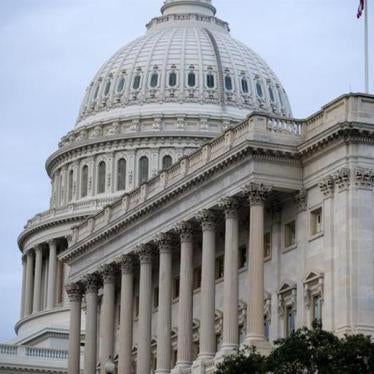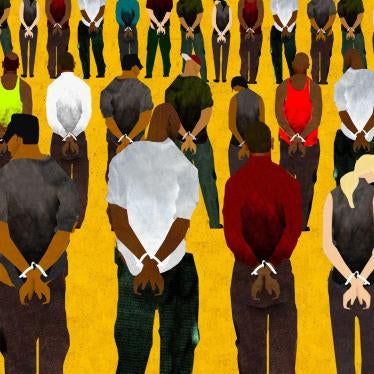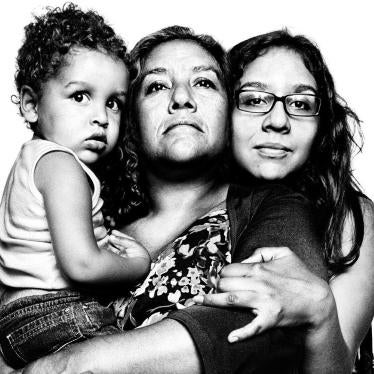April 22, 2021
Dear Member of Congress,
We, the undersigned organizations, write to urge you to support the Making Essentials Affordable and Lawful (MEAL) Act. This legislation would immediately repeal the lifetime ban on individuals with a past felony drug conviction from receiving Supplemental Nutrition Assistance Program (SNAP) and/or Temporary Assistance for Needy Families (TANF). The MEAL Act also supports reinstatement of SNAP assistance for individuals transitioning back to the community following a period of incarceration.
In 1996, Congress imposed a lifetime ban on individuals convicted of a drug felony from receiving SNAP and/or TANF. Although Congress gave states the ability to opt-out as part of the 1996 ban, many states still bar individuals and impose onerous and costly requirements that create barriers to restoring assistance. The drug felony ban on SNAP and TANF imposed by Congress undermines efforts by individuals striving to transition successfully into the community and provide for their families. Congress has the responsibility to waive this cruel policy during this time of extreme hardship for people who would otherwise be eligible for SNAP and TANF assistance.
SNAP and TANF assistance provide a minimal, supplemental amount of support during times of financial hardship, including now during the COVID-19 pandemic and economic downturn. Individuals and families who qualify for SNAP and TANF are low income, generally living 200% below the poverty line. SNAP provides monthly benefits to help buy food. States receive federal TANF block grant funds to provide assistance in various forms, including income assistance (such as wage supplements for working-poor families), child care, education and job training, transportation, aid to children at risk of abuse and neglect, and a variety of other services.
During this time of national crisis, individuals who would otherwise be eligible for SNAP and TANF assistance are ineligible due to a cruel and unjust law. And so, they must rely on community-based supports made scarcer by tremendous demand and severely compromised by the pandemic and economic downturn. While the current emergency is punishing these people unjustly, this law has always disproportionately impacted people of color and women. African American adults are 5.9 times more likely to be incarcerated than whites. Hispanics are 3.1 times more likely. Women are more likely to be incarcerated for drug crimes - 25 percent of women and only 14 percent of men in state prison have been convicted of a drug offense. Women also comprise the vast majority of recipients for SNAP and TANF, which means we are punishing mothers who have already served their time with a life sentence.
Restoring access to these programs is an essential step to help provide basic support, such as food, to individuals and families with children hit hard by COVID-19 and the economic downturn. Families receive a much lower overall benefit when a parent is ineligible for SNAP/TANF as a result of a drug felony conviction. This means that families with an adult who is banned from benefits has access to less food and support, resulting in food insecurity and increased stress that can lead to preventable health problems for both adults and children. The MEAL Act would immediately remove this barrier that exacerbates hunger and poverty for low- income individuals and families.
Access to programs such as SNAP and TANF also provides crucial support for formerly incarcerated individuals as they transition back into society. Even in ordinary times, formerly incarcerated individuals are confronted with too many legal barriers and other disqualifications as a result of a criminal conviction and are far more likely to experience unemployment because of a criminal record. During this time of crisis, employment opportunities and pathways to prosperity or at least out of poverty for formerly incarcerated people are much harder to secure. In addition, the ability of community-based providers to assist people transitioning to society with basic needs has been compromised by high demand for services and the pandemic. Waiving the drug felony ban would enable people re-entering society to focus on securing employment and housing rather than having to focus on finding basic needs such as their next meal. One study found that 91 percent of individuals suffer from food insecurity upon release. In addition, recently released individuals incarcerated for a drug offense are 10 percent less likely to recidivate when provided full access to benefits such as SNAP and TANF. When people can secure food, they are likely to avoid malnutrition and see a decrease in health care costs, which will help people continue to progress.
As organizations working to advance criminal justice reform, civil and human rights, reentry supports, and solve hunger and poverty, we urge you to cosponsor the MEAL Act and urge Congressional Leadership to include this legislation in future coronavirus relief legislation. Thank you for considering.
Sincerely,
9to5 (GA)
A Little Piece Of Light (NY)
ACLU of Southern California (CA)
Advocates To End Domestic Violence (NV)
AIDS Alabama (AL)
Alameda County Community Food Bank (CA)
American Association of People with Disabilities
American Public Health Association
Americans for Democratic Action (ADA)
Arizona Food Bank Network (AZ)
Asian Pacific American Labor Alliance, AFL-CIO
Association of People Supporting Employment First (APSE) (MD)
Autistic Self Advocacy Network
Baltimore Harm Reduction Coalition (MD)
Bmore Power (MD)
Bread For the World
California Alliance for Retired Americans (CA)
California Association of Food Banks (CA)
Carson Valley Community Food Closet (CA)
Casa-Trinity Inc.- Tioga County (NY)
Center for Employment Opportunities
Center for Great Expectations (NJ) Center for Law and Justice
Center for Law and Social Policy (CLASP)
Center for LGBTQ Economic Advancement & Research (CLEAR)
Center for Popular Democracy
Center for Responsible Lending
Central Texas Harm Reduction (TX)
Charlotte Center for Legal Advocacy (NC)
Children's Defense Fund
Church of Scientology National Affairs Office
Church World Service
Coalition on Human Needs
Color Of Change
Community Catalyst
Community Housing Partnership (CA)
Compass Family Services (CA)
Council on American-Islamic Relations (CAIR)
CURE (Citizens United for Rehabilitation of Errants)
Disability and Aging Justice Clinic (NY)
Disciples Center for Public Witness
Equal Justice Society
Equal Rights Advocates
Fair and Just Prosecution
FAMM
Federation of Virginia Food Banks (VA)
Feed More (VA)
Feeding America Eastern Wisconsin (WI)
Feeding Louisiana (LA)
Feeding Wisconsin (WI)
Friends Committee on National Legislation
Food Bank of Northern Nevada (NV)
Food for People (CA)
Food Research & Action Center (FRAC)
Forward Justice (NC)
Freedom Agenda
Futures Without Violence
G III Associates, LLC (DC)
GLIDE (CA)
Greater Pittsburgh Community Food Bank (PA)
Harvesters--The Community Food Network (KS/MO)
Health in Justice Action Lab (MA)
HealthRIGHT 360 (CA)
Heartland Alliance
HOPE Food Pantry at Susanville United Methodist Church (CA)
Housing and Community Development Network of NJ (NJ)
Human Rights Watch
Hunger Action Los Angeles Inc (CA)
Hunger-Free PA (PA)
ICNA Council for Social Justice
Interfaith Action for Human Rights
Interfaith Food Pantry Network (NJ)
Interfaith Food Pantry of the Oranges (NJ)
Jewish Council for Public Affairs
Just Future Project
Justice in Aging
JustLeadershipUSA
Law Enforcement Action Partnership
Legal Action Center
LGBTQ Allyship (WA)
Los Angeles LGBT Center (CA)
Lutheran Episcopal Advocacy Ministry NJ (NJ)
Maryland Communities United (MD)
Medication Assisted Treatment Support & Awareness (MATSA) (WV) Mental Health Association of San Francisco (CA)
NAMI San Francisco (CA)
National Alliance of State and Territorial AIDS Directors (NASTAD)
National Association of Criminal Defense Lawyers
National Association of Social Workers
National Center for Lesbian Rights
National Coalition for Asian Pacific American Community Development
National Coalition for the Homeless
National Conference of Black Lawyers
National Council of Churches
National Disability Rights Network (NDRN)
National Health Care for the Homeless Council
National HIRE Network
National Network of Arab American Communities (NNAAC)
National WIC Association
National Women's Law Center
NC Justice Center (NC)
NC Reentry Innovators for Success, Inc. (NC)
NC Second Chance Alliance (NC)
NETWORK Lobby for Catholic Social Justice
Network of Jewish Human Service Agencies
New Georgia Project Action Fund (GA)
New Life Assembly of God, Reno (NV)
North Carolina Justice Center (NC)
Nourish California (CA)
Operation Restoration (LA)
Parent Voices CA (CA)
People's Action
Positive Women's Network-USA
Prison Policy Initiative
Project Bread (MA)
Quest Counseling & Consulting (NV)
Reframe Health and Justice
RESULTS
Right Choice Recovery (NJ)
Ron Wood Family Resource Center (NV)
Rural Health Network SCNY (NY)
SAARA of Virginia (VA)
Safer Foundation
Saint Francis of Assisi Food Pantry (NV)
San Francisco Pretrial Diversion Project (CA)
San Francisco Public Defender's Office (CA)
San Francisco Senior & Disability Action (CA)
San Francisco-Marin Food Bank (CA)
Second Harvest of Silicon Valley (CA)
Social Action Linking Together (SALT) (VA)
Southern Poverty Law Center Action Fund
Southern Tier AIDS Program (NY)
Sparks United Methodist Church Food Pantry (NV)
St Francis of Assisi Food Pantry, Reno (NV)
STEP2 (NV)
StoptheDrugWar.org
Stop Stigma Now (NY)
Strollpdx (OR)
Students for Sensible Drug Policy
Swords to Plowshares (CA)
The Black Sex Worker Collective
The Bridge Church (NV)
The Center for Community Transitions (NC)
The Daniel Initiative
The DC Center for LGBTQ Community (DC)
The Lesbian, Gay, Bisexual & Transgender Community Center (NY)
The Levenson Foundation The Sentencing Project
The WEL Foundation (NY)
The Women's Building (CA)
TN State Conference NAACP (TN)
Transgender Law Center
Treatment Communities of America
Treatment On Demand Coalition SF (CA)
Trust for America's Health
Truth Pharm Inc. (NY)
Union for Reform Judaism
United Church of Christ, Justice and Witness Ministries
Urban Survivors Union
Utahns Against Hunger (UT)
Virginians Organized for Interfaith Community Engagement (VA)
Virginia Poverty Law Center (VA)
Washington Office on Latin America (WOLA)
Washington Statewide Reentry Council (WA)
Western Center on Law and Poverty (CA)







